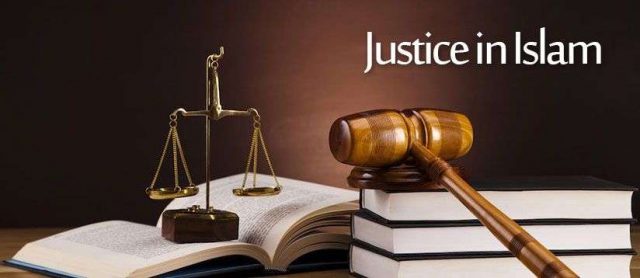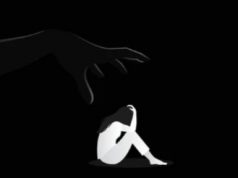Power & Society:
A fundamental aspect to be understood in the complexity of human society is the nature and relationship of power. Often, power is understood in a limiting sense, as merely to do with the political in terms of governance and rule. However, power is much more than that. In lay terms, power can be described as the control or influence that shapes perspectives and relationships, such that it establishes the direction and dynamics of social interaction.
Power pervades every aspect of society, including people’s personal and social subjectivity, their relationships, social hierarchies, social norms and values, knowledge and epistemologies, and overall cultural outlook, all of which reflect the power dynamics embedded in that society (this is called as power relations).
Power can take a formal form in the shape of an authority that gets to decide how things are (like religious or political authority). It can also be informally embedded in the relational dynamics of society so that the outcome of social interaction is determined in a particular way.
Power relations are inherent to the functioning of a society. However, they can be manipulated to be advantageous to some over others. This results in injustice and loss of equity. Given its vulnerable nature, skewed power relations result in the domination and advantage of certain individuals or collectives over the rest of the society (this is called hegemony).
Often, hegemonies are perpetuated deliberately to enable unfair and unjustified accruement of control, favourable outcomes, and the absence of barriers to the vested interests of select individuals and collectives at the cost of others. Left unchecked, over time, hegemonies ossify into structures and systems in a society.
Hegemonies can be social, like the caste system; economic, like corporate control over resources; political like dynastic politics or statism; or religious, like clergy. While structures and systems happen at the societal level, skewed power relations also occur at individual and ‘micro’ levels, such as within a family and between individuals.
In this context, justice is the cornerstone of human life, individually and collectively. Human society cannot exist or endure without justice, equity and balance.
Islam & Justice:
Islam being a way of life has layered, interlaced and networked relationships between the beliefs, values and teachings it prescribes. Belief in Islam has no basis unless it translates into action: it must shape our values and behaviours. For instance, mere belief in the unity of Godhood (Tawhid) is not restricted to believing in one omnipotent and omniscient God, it also reflects in keeping one’s ego under control and treating everyone as equal without holding on to any discrimination. This complexity exists because Islam approaches life in all its comprehensiveness, and without compartmentalizing it, aims for synthesis and coherence between belief, values, outlook, behaviours and action.
Belief in the unity of Godhood requires belief in the unity of life: no dichotomy of here and hereafter or body and soul; and unity of creation: all humans are equal and have no distinction over one another. This requires balance and equity in life so that one can do justice to oneself and others. It is no wonder then that justice has a critical importance in Islam, being cited as one of the reasons for the revelation of the Divine Guidance:
We sent Our messengers with clear signs, the Scripture and the Balance, so that people could uphold justice (Quran 57:25).
However, Islam approaches justice more comprehensively and substantially than merely in a sense of rights and duties. In the Islamic conception of human existence, given that human beings have a capacity for both, good and evil, justice cannot be merely left to the whims of human desire. There needs to be a more expansive set of regulators for human action and behaviour. Therefore, Islam addresses the question of justice on two levels: self and structure.
At the level of self, justice is juxtaposed with two other concepts: reformation and accountability of the Self (Tazkiya) and Empathy (Marhamah). The existence of justice in a society requires that justice as a value be engendered in every individual, as well as the collective. For justice to take root as a value requires conscious and systematic conditioning of empathy and compassion in the individuals of the society. However, given that the human self is corruptible, the human temperament and behaviour need to be consciously and actively conditioned to regulate its potentialities of good and evil for the best and hold itself accountable.
At the structural level, Islam regulates power relations to prevent hegemonies from forming. Accounting for social hierarchies and norms as a functional and contextual necessity, Islam regulates power relations and dynamics to prevent abuse. Socially, it enshrines absolute and unequivocal equality of all human beings. Economically, it regulates against concentration of wealth, and equitable access to resources. Politically, it prevents abuse of power through popular rule and collective accountability. Ontologically, it prevents the abuse of the human self by locating it in relation to, and subordinating it, to Godhood. Religiously, it prevents any intermediation between Godhood and mankind.
Justice in Seerah:
As the bearer of the Divine Guidance and exemplar to mankind till the end, the life of Muhammad (PBUH) embodiment of its teachings. Numerous examples from the life of the Prophet (PBUH) show how he internalized justice as a value and was relentless in his lifelong pursuit of justice. He (PBUH) saw humanity as one, worked to alleviate their pain and suffering, was not partisan to anyone in the matter of justice, and his empathy and compassion extended beyond humans to all creation. Here’s a vignette of empathy and justice from his (PBUH) life:
1. Impartiality in the matter of justice:
A woman of the Makhzoom family with good connections was found guilty of theft. For the prestige of the Quraysh, some prominent people including Usaamah Ibn Zayd, may Allah be pleased with him, interceded to save her from punishment. The Prophet refused to condone the crime and expressed displeasure saying: “Many a community ruined itself in the past as they only punished the poor and ignored the offences of the exalted. By Allah, if Muhammad’s (My) daughter Faatimah would have committed theft, her hand would have been severed. (Bukhari)
2. Hilf al-Fudhool or the Pact of Virtue, was a pact made amongst a group of fair-minded people of Makkah including Muhammad (PBUH) before the advent of the Prophethood, to stand against oppression and to restore the rights of the oppressed, regardless of their identity or background. Regarding it: Talha ibn Abdullah reported:
The Messenger of Allah, peace and blessings be upon him, said, “I witnessed a pact of justice in the house of Abdullah ibn Jud’an that was more beloved to me than a herd of expensive red camels. If I were called to it now in the time of Islam, I would respond” (Bayhaqi).
In another narration, the Prophet said, “Make such pacts to restore rights to their owners such that no oppressor has strength over the oppressed” (ibid).
3. Meethaq al-Madinah or the Charter of Madinah, which was a constitution of sorts for the polity of Madinah, between the Muslims, and the pagan and Jewish tribes residing there. Its clauses included equality, protection against injustice, mutual aid, protection from oppression, treatment of fairness and justice even for prisoners (Ibn Ishaq).
4. Addressing the pilgrims during the Farewell Hajj, He (PBUH) underscored equality and by extension equal treatment of all mankind:
“O people! Your Lord is one and your father is one. (Adam) An Arab has no superiority over non-Arab, nor a non-Arab has any superiority over Arab, also white has no superiority over black nor does black have any superiority over white, except by piety and righteousness. All humans are from Adam and Adam is from dust” (Bukhari).
5. Internalizing the values of empathy and compassion for the entire creation:
One of Prophet Muhammad’s companions narrates, “We were on a journey and during the Prophet’s absence, we saw a bird with its two chicks; we took them. The mother bird was circling above us in the air, beating its wings in grief. When Prophet Muhammad returned he said, “Who has hurt the feelings of this bird by taking its chicks? Return them to her” (Muslim).






